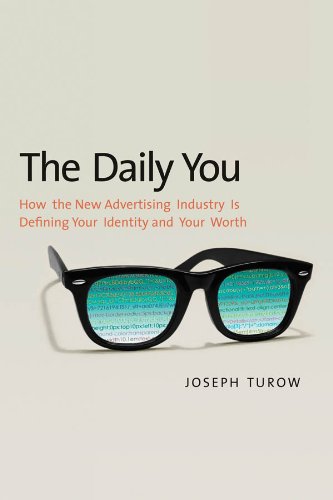
The Daily You
How the New Advertising Industry Is Defining Your Identity and Your Worth
- اطلاعات
- نقد و بررسی
- دیدگاه کاربران
نقد و بررسی

December 12, 2011
University of Pennsylvania professor Turow analyzes the relationship between Internet media, advertising, and target demographics. His position on the digital age is generally positive, but the ethical and social implications of personal information being used by companies to determine who is a "target" and who is "waste" have him worried: "We have a serious social problem,." Turow (Niche Envy) says, refers refering to the results of this new media information gathering phenomenon as "social discrimination," since its effectiveness is based on valuating an individual's potential worth to a particular company or political campaign. Turow examines the psychological consequences of this surreptitious information gathering, and asks the crucial question: "hat, if anything, can you do about it?" While Turow's thesis intrigues and is both socially and politically relevant, at times his writinghe gets bogged down by facts and figures. Nevertheless, he has produced an important and insightful book.

December 1, 2011
Turow (Communication/Univ. of Pennsylvania; Niche Envy: Marketing Discrimination in the Digital Age, 2006, etc.) warns that today's advertising industry is secretly reshaping our world--and not for the better. Using the Internet, writes the author, marketers and media now peek, poke, analyze and tag us, gathering data for "one of history's most massive stealth efforts in social profiling." Turow shows that advertiser efforts to understand consumer buying impulses now involve many digital tracking tools as well as companies like BlueKai and Rapleaf, which follow people on and across websites to learn what they care about and who their friends are. Once collected, customer information analyzed so marketers can divide people into targets and waste, writes the author. Targets are desirable consumers; waste has no value. When companies "track people without their knowledge, sell their data without letting them know what they are doing or securing their permission, and then use the data to decide which of these people are targets or waste, we have a serious social problem." All these privacy-breaching and social-profiling activities are legal and unregulated, and all are becoming standard practice among media buyers in top advertising firms. As a result, the industry has information on the social backgrounds, locations, activities, and social relationships of hundreds of millions. Turow traces the history of advertising's evolving relationship with the Internet, debunks arguments that the consumer is king in the new media environment and says advertisers are segregating people and customizing content on the basis of assigned reputations. The practices persist despite the fact that 79 percent of respondents in a 2005 survey said they are nervous about websites having information about them. An eye-opener that will startle readers, the book offers grist for policy makers and others battling to preserve a shred of privacy in America.
(COPYRIGHT (2011) KIRKUS REVIEWS/NIELSEN BUSINESS MEDIA, INC. ALL RIGHTS RESERVED.)

December 1, 2011
Turow explains how the Internet today, rather than enhancing consumer power, diminishes it because of a customized media environment created by companies owned by marketers that secretly research the online behavior of vast numbers of users. Websites, advertisers, and others are continuously assessing the activities, intentions and backgrounds of virtually everyone online; even our social relationships and comments are being carefully and continuously analyzed, and Turow considers this a type of social profiling. As companies follow our digital behavior, potentially including mobile phones and TVs, the companies' claims that we are anonymous is irrelevant. Turow offers steps to offset the new rules of advertising that are secretly reshaping our world, steps including the need for teaching basic digital technologies to children, beginning in middle school, and a privacy dashboard that shows what information the advertiser used about you to create a specific ad. While reading like a classroom text, it is excellent, readable, and contains important information for a wide range of library patrons.(Reprinted with permission of Booklist, copyright 2011, American Library Association.)




دیدگاه کاربران